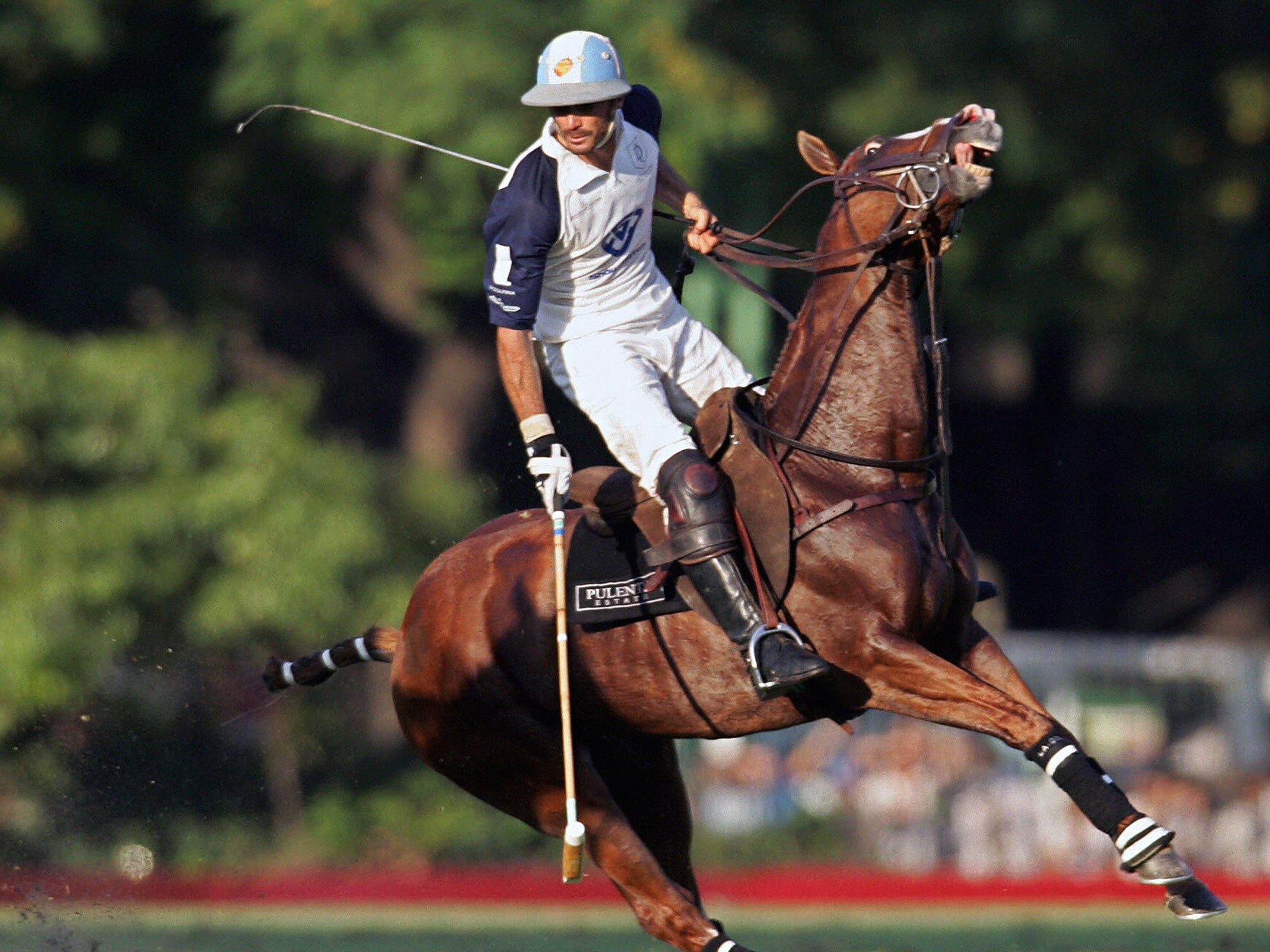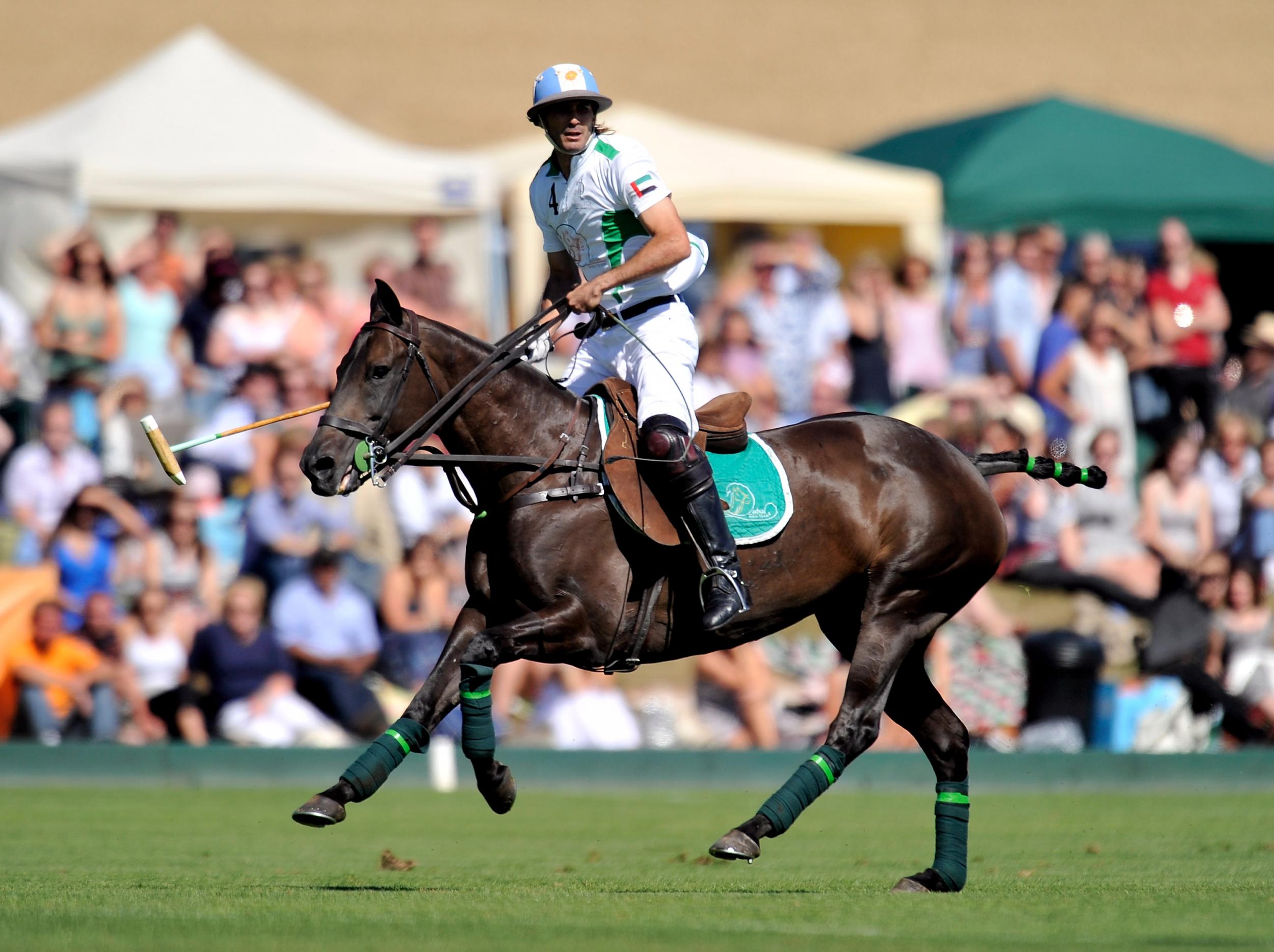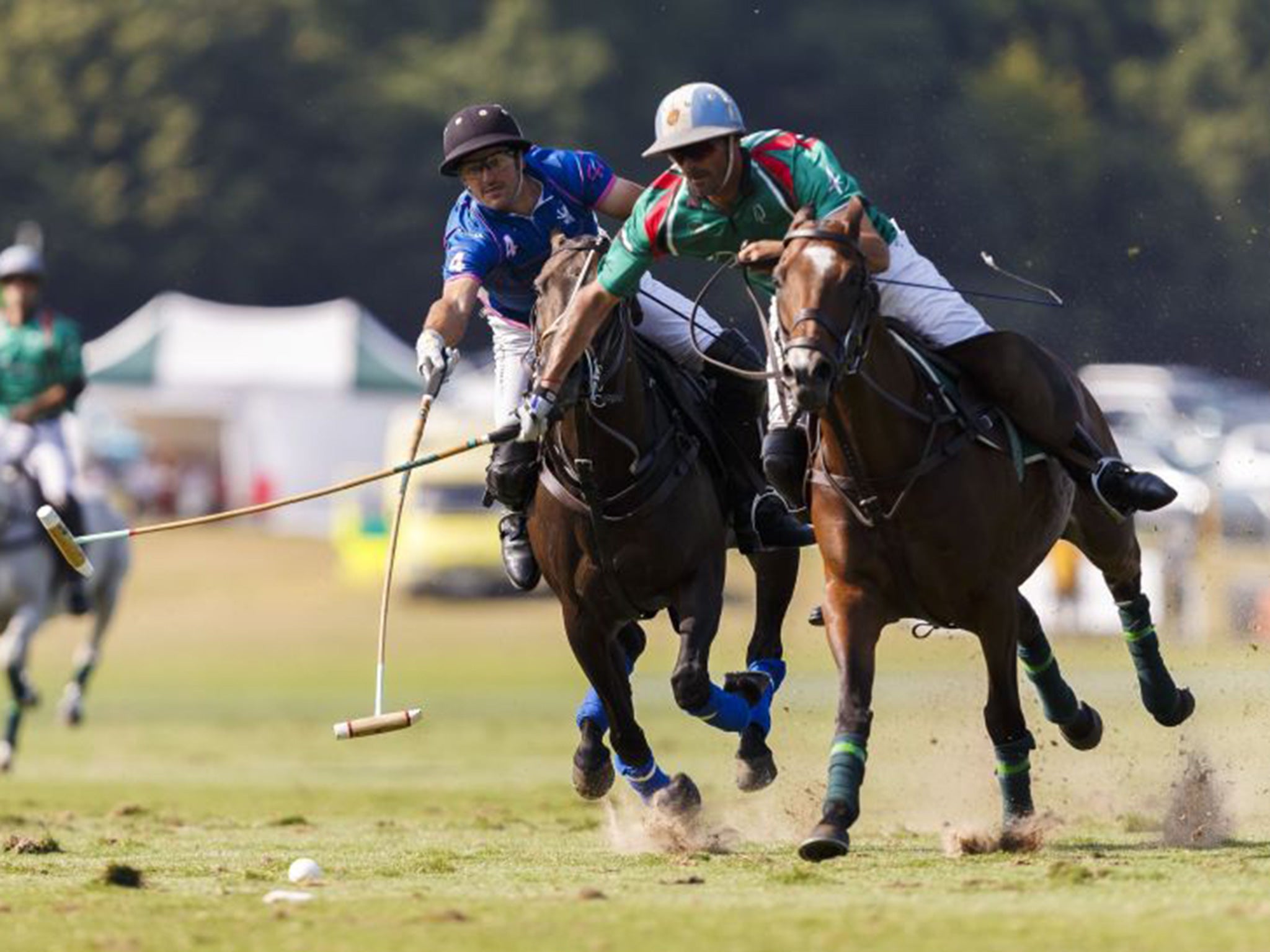Polo pony cloning is set revolutionise the sport at Argentina's Palermo Open
Star player Adolfo Cambiaso will be taking at least four clones onto the field of the Palermo Open and possibly more

When polo fans converge on Buenos Aires in two weeks’ time for the annual Palermo Open – a luscious high-society affair of fizz, fascinators and shiny trophies – all eyes won’t just be on the most famous player in the world, Adolfo Cambiaso, himself an Argentine. More than ever, they will be on his steeds.
By the time it’s over, as many as 500 horses will have churned the Palermo turf. But each time Mr Cambiaso joins the fray, aficionados will look up at the scoreboards to see if maybe he is astride, say, Cuartetera B01 or Cuartetera B02, or another horse with a serial number attached. If so, they will down their flutes and pay very close attention indeed. These will be copies of horses now retired. Or expired.
A veteran also of the British polo circuit, the dashing Mr Cambiaso, now 40, has become more than a star rider but also the ambassador for the increasingly lucrative – and controversial - practice of polo pony cloning. Indeed, he is a full business partner in Crestview, the largest and oldest of two companies in Argentina now going full pelt to bring clones of past champions to market.
The progress made by Crestview, founded by Texan oilman Alan Meeker in 2009, as well as that of its only rival, Kheiron Laboratories, also in Argentina, promises to transform a sport that already for years has seen breeders short-circuit nature with embryo-transfer techniques, whereby top-performing mares remain in competition even as they are bred; their fertilised embryos brought to term by surrogates.
Cloning, though, is of a different level. Almost daily, scientists in the laboratories of both companies are inserting DNA taken from the skin of a few champion horses of yore and inserting it in living mares’ eggs. It doesn’t always work, but with luck and some help from electric shocks and chemical soaks the DNA takes and the fertilised egg can then be implanted in a waiting surrogate.
“I am very excited and very optimistic about what cloning will do for the sport,” Martin Barrantes, a long-time breeder here and representative of Kheiron told The Independent last week. “It means we will have better horses and thus more spectacular games for players and spectators.”

As for Mr Meeker, he has lost count of how many clones his company has created both at the laboratory in Argentina and another in South Carolina. In a phone interview, he said the number is now between 50 or a hundred. What grips him though is this: the first clones he made are now old enough to be tested at Palermo, assuming they are good enough. It seems they are. He revealed that Mr Cambiaso - a fierce competitor – will be taking at least four clones onto the field and possibly more.
“There are only three metrics to judge a cloned polo pony by,” he offered. “It can be the same, better or worse than the original.” So far, he says, 85 per cent are turning to be as good on the field or better. The odds are improved by providing each clone with exactly the same living environment that the horse it was cloned from was used to. If that horse was had a favourite yellow Labrador, Mr Meeker doesn’t just find any yellow Labrador for the clone. He will find the same Labrador or a descendant of it.
Whichever clones Mr Cambiaso chooses for the open – they may include copies of a one-time British champion, Small Person – the response of spectators could be mixed, Mr Meeker admits. “You will hear the murmurs and whispers. There will be heightened excitement and there will be a certain hush. People are questioning whether they should be excited or not, a lot of people don’t know how to react.”
That not everyone is exactly comfortable with what he is doing hasn’t escaped him nor have the efforts by the European Union to ban the cloning of all animals, horses included. But he recalled how thousands in London in the 1970s marched, “claiming that test tube babies were against nature and God. But today that’s called in vitro fertilization and it brings happiness to millions of people every year”.
Nearly anyone directly involved in the cloning industry in Argentina will offer a variation on the theme – that cloning is one more assisted reproduction tool among many to improve the chances of breeding the best possible horses for the sport. “We are not playing God,” another cloning breeder here, who ask that his name be withhold, protested. “I am duplicating, it’s like making a twin. It’s not a horse with two heads or with five legs or a V8 motor inside. We are doing this for sports reasons, for competitiveness.”

And money. The first clone of Cuartetero – once one of Mr Cambiosa’s favourite polo mares - sold at auction to Argentinian businessman and polo fan Ernesto Gutierrez for $800,000. (He subsequently became a partner in Crestview.) But Mr Meeker denies this will skew the sport in favour of those rich enough to buy clones or harm traditional breeders. He’ll sell you a son or daughter of a Cuartetero clone today for $80,000. The clones themselves are not for sale.
“I can’t reveal my clients to you, but I can assure you that this is now well accepted by all the players here in Argentina.” If the EU indeed imposes its cloning ban, he says the market out there will be ample for his company and Kheiron to thrive, citing Latin America, India, China and the Middle East.
Nor will he mind if the inevitable few at the Palermo Open next month have the vapours when Mr Cambiaso gallops out on a copy of a horse that may be dead.
“A clone is merely a twin separated by time.”
Join our commenting forum
Join thought-provoking conversations, follow other Independent readers and see their replies
Comments
Bookmark popover
Removed from bookmarks